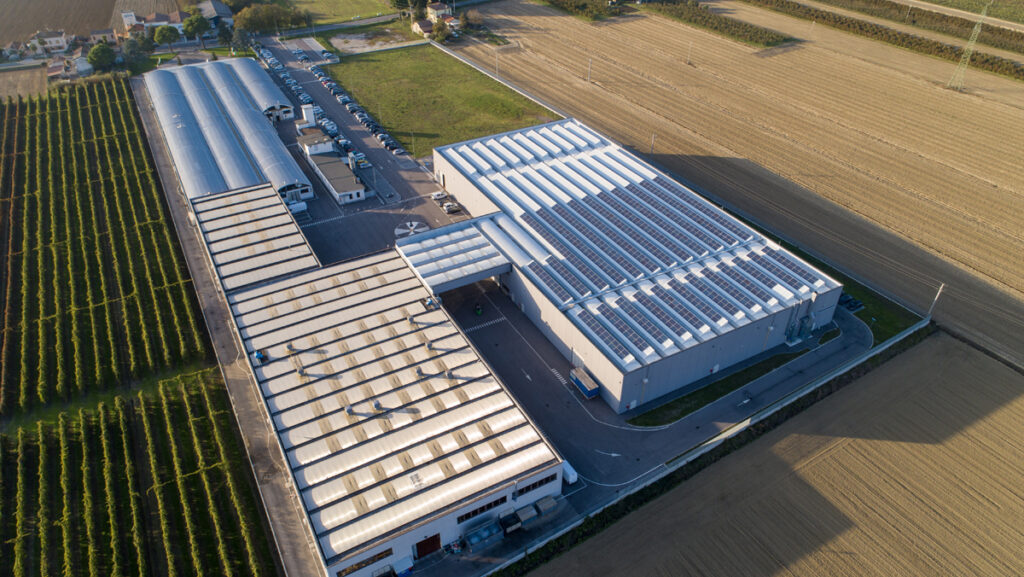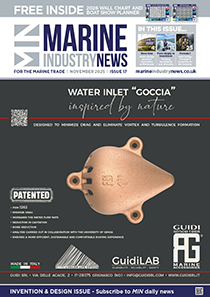Quick Group unveils ESG roadmap
 Marco Rodi, chief sustainability officer of Quick Group. Image courtesy of Studio Borlenghi.
Marco Rodi, chief sustainability officer of Quick Group. Image courtesy of Studio Borlenghi.
Marine equipment manufacturer Quick Group has launched a raft of sustainability initiatives, including reducing carbon emissions, enhancing supply chain transparency and increasing investments in renewable energy.
The group says it is working towards sourcing 100 per cent renewable energy by the end of the year. Other initiatives underway include carbon footprint mapping, ISO certification, implementing vertical production methodologies and promoting workplace inclusion and equity strategies.
The company says it has established a dedicated sustainability team to help it achieve its targets.
“The company’s sustainability policy has undergone significant evolution over the past few years, reflecting a growing commitment to environmental, social and governance (ESG) principles,” says Marco Rodi, chief operating and sustainability officer of Quick Group. “Our sustainability policy has moved from basic compliance with environmental regulation to a comprehensive and strategic approach to ESG, including recycling or energy efficiency initiatives. We have also extended it to supply chain transparency.”
The new policies include several shorter and long-term goals. “For example, we would like to move from currently using 40 to 50 per cent renewable energy to using 100 per cent renewables,” says Rodi. “Concurrently, we are also working on using more sustainable packaging using recycled materials and materials that can be recycled, as well as being fully FSC-certified.”

Alongside these initiatives comes a more ambitious goal – to work with partners and suppliers to shorten and improve supply chains. “This aspect is one of the hardest things to do but also one of the most important – so we must build a supply chain with the same goals as the Quick Group itself, sharing our values and our visions,” says Rodi. “Ultimately, it all leads to the potential for lifecycle assessment. We believe that this comprehensive approach will ensure that from raw materials to finished products, our practices are aligned with our sustainability commitments and will be driven by a continuous improvement approach.”
Most Quick Group suppliers are Italian and already aligned with European ESG and DEI policies. Additionally, many are based close to the production facilities, giving the Group a head start in reducing supply chain impact.
“Thanks to our local suppliers and specific vertical production model, we can reduce all kinds of waste, because we are able to produce just what our customers need and just when they need it,” says Rodi. “We can work in a very flexible way, and we can change our production schedule quickly according to our customers’ needs. For me this is a very powerful aspect in terms of ESG because we can minimise over-production and warehouse storage and reduce energy consumption.”
Quick Group says, in addition to the new production and sustainability initiatives, it is also taking a proactive approach to workplace gender equality. “Promoting gender equity within our company is a key aspect of the diversity, equity and inclusion strategy,” Rodi says. “In our sector of engineering and production, there is traditionally a gender imbalance, and our comprehensive approach to promoting gender equity encompasses inclusive recruitment, equal opportunity for advancement, a zero-tolerance stance on discrimination and specific initiatives to encourage more female engineers, such as focusing on early engagement at universities and creating an inclusive culture for mentoring and professional development.”

Finally, there’s the aspect of innovation. “Innovation is part of our DNA,” Rodi says. “We are continuously exploring new technologies, material methodologies and sustainability aspects. It extends from the products themselves to the production processes for those products. From lean manufacturing principles and exploring more recycled materials and more energy efficient processes, we aim to achieve specific certification standards such as ISO 14001 and ISO 45001.”










